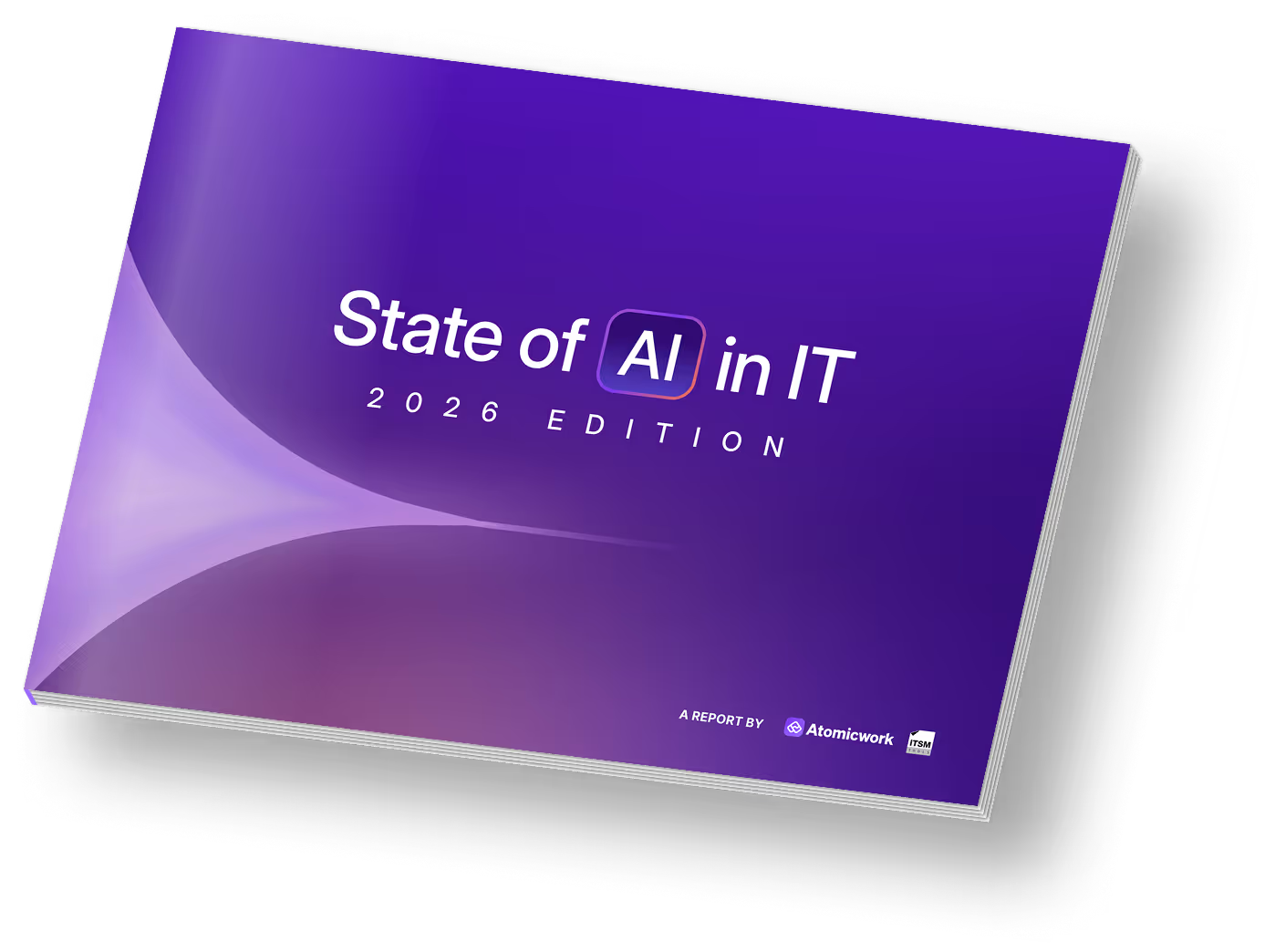From processes to people: Embrace modern service management to fulfill ITIL 4 principles

IT used to be all about keeping the wheels turning—ensuring systems stayed functional and processes ran smoothly, regardless of the human experience.
However, with ITIL 4, the focus has genuinely shifted.
It’s no longer just about the mechanics; it’s about ensuring your employees have a good experience.
The transformation is not just about refining processes—it’s about driving value and aligning IT services with business needs while taking a deeply people-centric approach.
The need to shift to value and people-centricity
Historically, ITIL has been a powerful tool for managing IT operations, offering a structured framework for IT service management (ITSM). The focus of ITIL v3 is more process-heavy, focusing on keeping the lights on in IT systems.
However, just relying on processes, won’t help organizations in terms of profitability or productivity. Troubleshooting with manual processes for simple requests like password resets or providing access could cost IT teams as much as $85K/year and $55K/year respectively, in terms of wasted agent hours.
In our many years of combined experience interacting with countless organizations, we’ve noticed a persistent challenge—companies may focus on refining their product or process, but they frequently overlook the importance of their people.
Too often, IT initiatives prioritize what’s best for the infrastructure or the bottom line, without considering how the changes will impact the day-to-day experience of their employees. Employees, the most important customers of internal IT systems, become an afterthought. This lack of focus on employee experience results in frustration, inefficiency, and wasted talent.
ITIL 4 takes a radically different approach by ensuring that employees are no longer sidelined. This version is designed with the end-user in mind, pushing organizations to prioritize how IT services impact their people’s work and satisfaction.
At the heart of it is ITIL 4’s ‘Service Value System (SVS)’, which emphasizes co-creating value with stakeholders. Instead of focusing solely on internal IT operations, the goal is now to enhance the overall experience for both internal users (employees) and external customers.
The SVS promotes adaptability, encourages collaboration, and focuses on continual improvement, ensuring that organizations can respond quickly to changes while keeping people at the center of their service management strategies.

3 core tenets of modern service management
Too often, IT platforms are often chosen based on market trends or what competitors are doing. Not on how they can enhance productivity or improve the daily workflow of employees.
Modern service management takes on new dimensions, focusing on three key tenets: people-centricity, productivity-oriented service, and context-centric management.
Here are the core tenets:
1. People-centricity: Modern service management prioritizes the user experience by making it easy for employees to resolve IT issues from where they work. Instead of redirecting users to clunky portals, solutions are integrated into platforms like Slack or Microsoft Teams.

This approach brings IT support directly to the employee's workflow, minimizing disruptions, and enhancing the overall experience. In short, IT goes to the employee, instead of the employee going to IT.
Employees can initiate support requests, check ticket status, or even resolve common issues directly from their chat interfaces. This seamless integration ensures that IT services empower employees, truly making them a partner in their success.
2. Productivity-oriented Service: In contrast to traditional ITSM systems that often get bogged down by unnecessary bureaucracy, modern service management leverages AI-based automation to enhance productivity. This approach focuses on eliminating friction and streamlining workflows.
For example:
- Automated password resets can be initiated and completed through AI assistants, reducing wait times and IT workload.
- User provisioning workflows can be automated, ensuring new employees have access to necessary systems from day one.
- AI-powered predictive analytics can anticipate and prevent potential IT issues before they impact employees.

By automating routine tasks and providing intelligent assistance, modern service management allows both IT staff and end-users to focus on higher-value activities.
3. Context-centric management: Modern service management addresses the challenge of information fragmentation by seamlessly connecting and integrating different enterprise systems. This integration enables a continuous flow of data, allowing AI systems and AI workflows to learn from user interactions and provide more contextual support.

In practice, this means:
- Support conversations are more informed, with AI assistants having access to user history, device information, and past interactions.
- Services can be tailored to specific departments or roles, recognizing that different parts of the organization may have unique needs.
By ensuring that IT services are aligned with the broader organizational context, modern service management drives value in ways that are both meaningful and measurable.
Here's how the key principles of modern service management differ from traditional ITSM approaches.

Adopting ITIL 4 with modern service management
The truth is that you cannot truly embrace ITIL 4 principles unless you adopt modern service management approaches.
The principles of ITIL 4—value co-creation, holistic approach, and adaptability—can only be fully realized through the implementation of modern service management practices. People-centric approaches, productivity-oriented services driven by AI and automation, and context-aware management are not just complementary to ITIL 4; they are essential for its successful adoption.
Organizations must embrace both ITIL 4's strategic framework and the practical, technology-driven solutions of modern service management to empower employees with seamless IT support. By recognizing and acting on this synergy, organizations can create an environment where employees perform at their best, ultimately driving innovation and business success.
It’s really simple, after all–when people thrive, so does the business.
Frequently asked questions

Faq answer paragraph

Faq answer paragraph

Faq answer paragraph

Faq answer paragraph

Faq answer paragraph

Faq answer paragraph

Faq answer paragraph

Faq answer paragraph

Faq answer paragraph

Faq answer paragraph
You may also like...


































